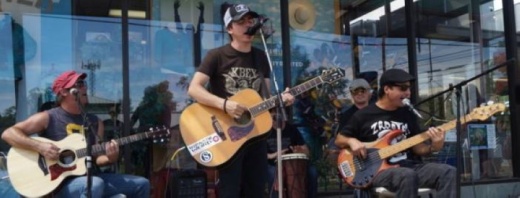The Central Health board of managers on April 28 did not vote on the requested contract from HAAM, effectively killing the proposal.
HAAM in late March reached out to Central Health rescinding a previous request to enroll 275 of its musicians on Sendero Health Plans. The nonprofit cited an extension of the Affordable Care Act open enrollment period for the request.
In its request for $150,000 in funding, HAAM stated its goals were to conduct outreach to 1,056 of its members already enrolled in premium assistance from Central Health, according to Central Health board meeting documents.
Ultimately, HAAM’s goal was to get 728 musicians to either re-apply or newly enroll in health care coverage plans.
Mike Geeslin, president and CEO of Central Health, recommended the health care district continue its current relationship with HAAM—without an additional contract—after reviewing the proposal.
“We’re going to continue to capitalize on this partnership and reach out to communities of color, regardless of musical ability,” Geeslin said at the April 28 meeting.
Geeslin additionally pointed to “legal, compliance and procurement issues” that led to his recommendation to avoid entering into a new contract with HAAM, Central Health documents show.
During discussion of the vote, Geeslin said Central Health will continue to work alongside HAAM on outreach to enroll local musicians, particularly musicians of color, in affordable health care plans.
According to Central Health documents, it has already budgeted $601,000 in its current fiscal year towards “ACA education and enrollment services.” Of that, more than $480,000 has already been spent.
Further, Central Health has official partnerships with Foundation Communities that provide enrollment assistance to HAAM members, according to documents from Central Health.
Cynthia Valadez, who serves on the Central Health board of managers, disagreed with Geeslin’s recommendation and put forward a motion to fulfill the new funding request from HAAM. Her motion was never brought to a vote.
“There is no other group reaching out to musicians. They are the ones with the boots on the ground. ... That is the industry most impacted by COVID-19,” Valadez said. “We are in a pandemic and this is an emergency issue.”





